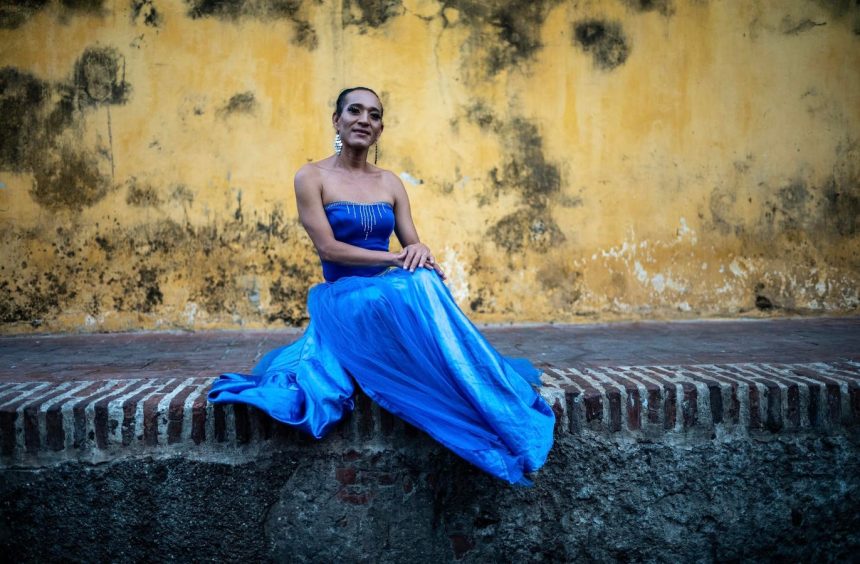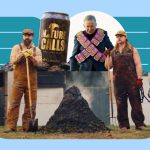Like many other epidemics, AIDS disproportionately impacts marginalized populations like the LGBTQ+ community. Widespread stigma and discrimination contribute to social exclusion, creating barriers to testing, treatment, education, and care. LGBTQ+ communities often face higher rates of poverty and homelessness, which can increase the risk of HIV exposure. And, shockingly, same-sex relationships are still criminalized in many countries around the world, further hindering health service efforts.
Addressing these disparities requires comprehensive strategies that combat stigma and discrimination, improve healthcare access, and empower the vulnerable. These efforts must be tailored to meet the needs of LGBTQ+ individuals so that everyone, everywhere, has access to life-saving resources.
(RED), the organization that I lead, recently traveled to Colombia to meet with leaders who are tackling these injustices. Their stories of battling and overcoming adversity are both infuriating and inspiring. I hope learning from these leaders will be as enriching for you as it was for me.
Learsy Batista, Trans Peer Educator, ENTerritorio
As a transgender woman, Learsy Batista knows firsthand the barriers LGBTQ+ people face when accessing vital health services. After learning she was HIV positive, Batista turned to ENTerritorio, a Global Fund supported comprehensive health center in Colombia, for psychosocial support and medical care. Batista described seeking health care services as a “long, hard process,” but said her peers at ENTerritorio gave her strength.
After receiving the care she needed, Batista channeled her energy towards helping others. She now works as a Trans Peer Educator for ENTerritorio, detecting positive cases of HIV and TB in her community. As a peer educator, Batista provides compassion, resources, and care to those in need. “Here, you have a hand to help you get back up. You’re not alone. You have a community, you have a friend, you have a sister,” Batista explained.
Batista enjoys being a peer educator because it allows her to develop new entrepreneurial skills and has sparked a new passion for making her own clothes and textiles. She also loves helping her neighbors. “I like bringing the knowledge that I’ve learned in my day-to-day life to my community. I like knowing that people don’t feel alone, the same way I had support.”
Despite the obstacles she faces, Batista dedicates herself to changing the narrative around the LGTBQ+ community. Through her work at ENTerritorio, she’s making positive change possible.
“This support gives you the strength to move forward,” she said.
Steven José Moreno Andrade, Peer Educator, El Centro Integrate
At age 14, Steven José Moreno Andrade’s family packed their belongings and embarked on a treacherous trip from rural Venezuela to Cartagena, Colombia in search of a better life. But as a member of the LGBTQ+ community and a Venezuelan migrant, Andrade faced incessant harassment and discrimination.
“Beyond identifying as a migrant and identifying as Black or African, there is another challenge – identifying yourself as someone from the LGBTQ+ population. All of this comes together and it is tough. It is tough because sometimes you have to put up with humiliation from the public. You just want to be free and walk and dress the way you want,” he said.
Andrade then discovered El Centro Integrate, a Cartagena center that bridges national and local health initiatives to address the unique needs of Colombian citizens and the growing migrant population. As a peer educator and influential local activist, Andrade connects El Centro Integrate to members of the local LGBTQ+ community seeking medical, psychological, and legal assistance. Thanks to funding from the Global Fund, El Centro Integrate supplies rapid HIV tests, life-saving medicines, and other preventive care to Cartagena’s most vulnerable populations.
Andrade loves being a community leader because he gets to meet new people and share his El Centro knowledge with those in need. “We are just people like others, like everyone else, like heterosexuals, who only demand and are looking to get ahead, working, looking for the possibility to study, to earn a scholarship, to be able to get ahead and succeed like everybody else,” he said.
Through his work at El Centro Integrate, Andrade builds a better life for his mentees, and a more tolerant and equal world for everyone.
Miller Huila, Peer Educator, La Corporación Stonewall Antioquia
Miller Huila says her work with human rights organizations and other activists finally allowed her to be herself. This work began with La Alianza Social LGBTI, an organization in Antioquia, Colombia, that brings together community groups and activists fighting to protect the rights of LGBTQ+ people.
At the time, Huila identified as a gay man and struggled to be herself with her family, friends, and community. Huila then became secretary of La Corporación Stonewall, a Global Fund-supported organization that provides community-based HIV testing, treatment, and counseling.
Huila has since transitioned and now identifies as a trans woman. Today, she works as a peer educator and helps other people living with HIV navigate the legal system and community-based testing, treatment, and psychological programs.
Huila says her work can be demanding, but her personal journey gives her the strength to keep going. “I feel proud of who I am,” she said.
What’s Next?
Leaders like Learsy Batista, Steven José Moreno Andrade, and Miller Huila all play a pivotal role in fighting AIDS and injustice in their communities. Their firsthand experiences overcoming stigma and discrimination make them uniquely positioned to advocate for comprehensive, inclusive strategies that address the specific challenges faced by the LGBTQ+ community.
We need more leaders like them to share their unique perspectives, raise awareness, and champion inclusive policies. It’s the only way we’ll ever end injustice and make preventable and treatable disease, preventable and treatable for everyone.
Read the full article here









